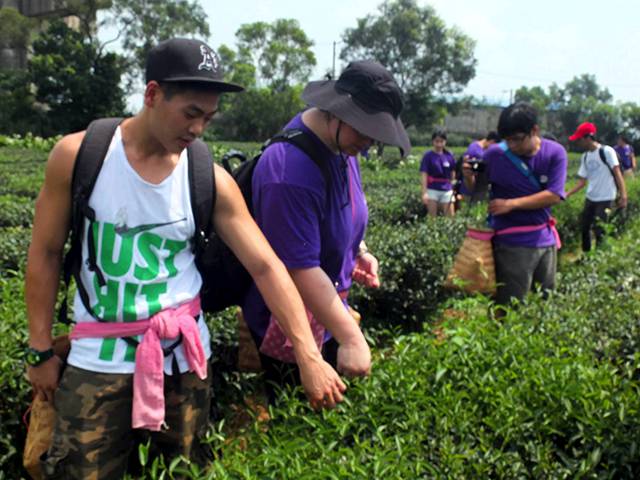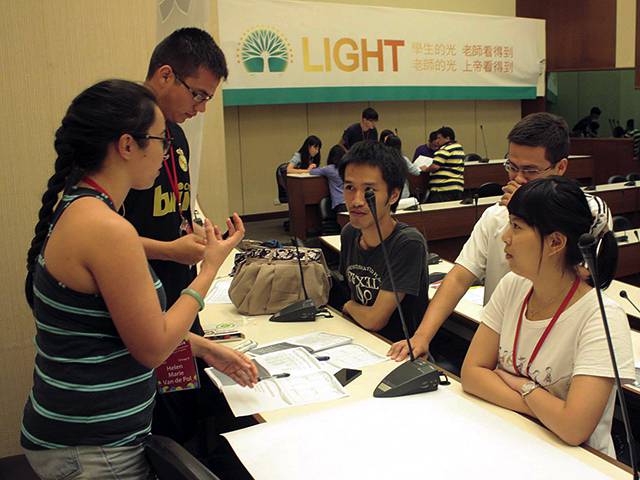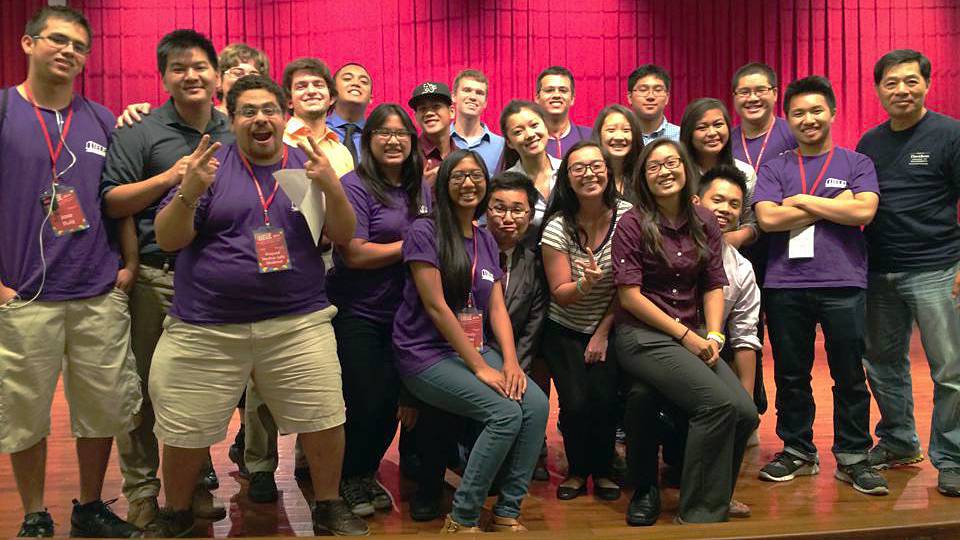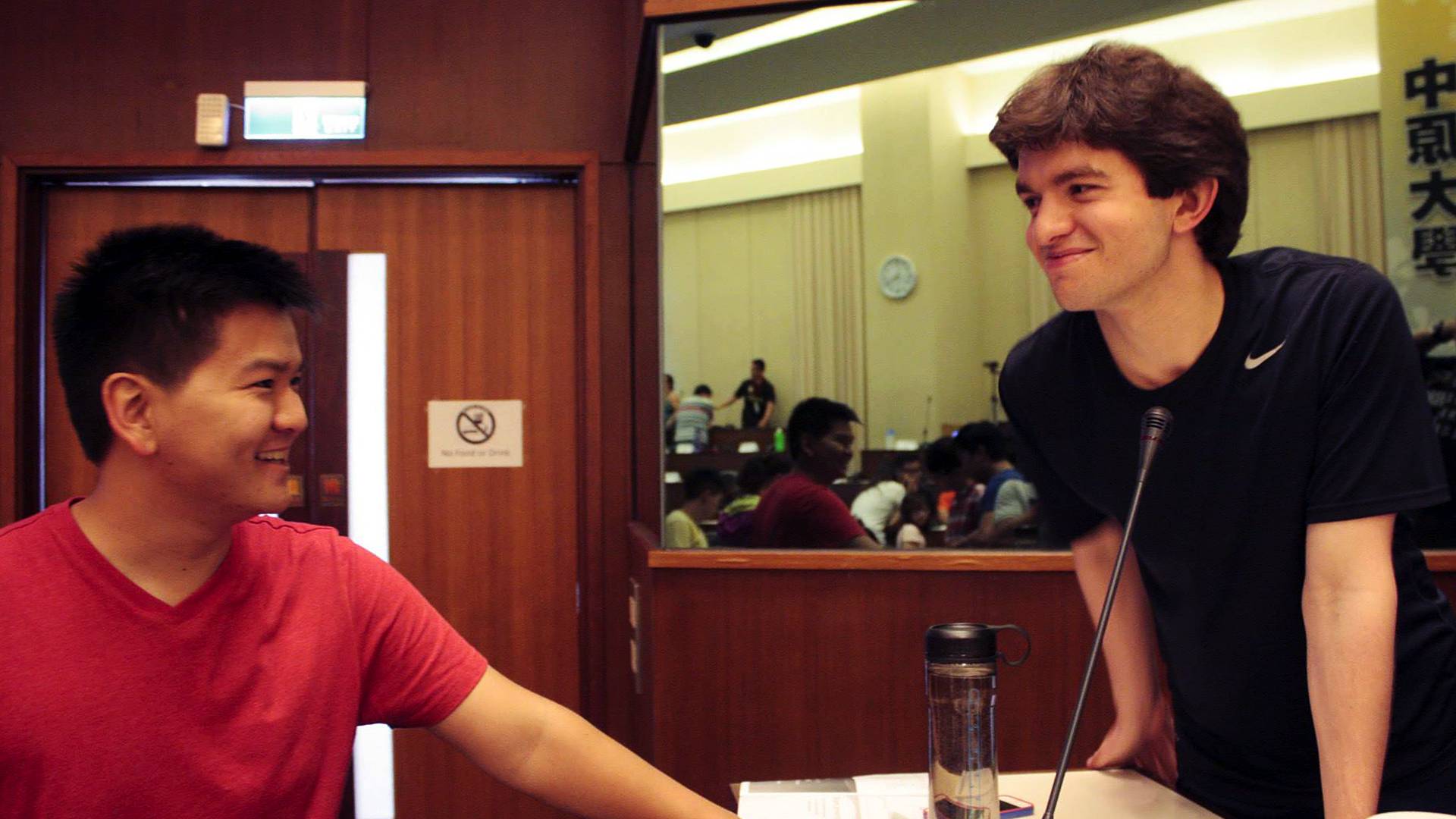High Praise for Global Technology Initiative’s Summer Program in Taiwan
They left as a class and returned as a family – the 2014 cohort of 21 students from all engineering majors truly bonded during a trip of a lifetime as they traveled to Jhongli, Taiwan, as part of the Global Technology Initiative (GTI). The program had a new format this summer – for the first time, SJSU students stayed in one place, in dormitories on the Chung Yuan Christian University (CYCU) campus near Taoyuan International Airport. CYCU hosted an intensive three-week workshop, the International Engineering Innovation and Entrepreneur Leadership Experience Program, conducted in English. In past trips, GTI students moved around to different cities in either China, India or Taiwan, to complete a study tour.
BCME Professor Richard Chung, director of the GTI Program, who has accompanied the
students for the past four summers, says, "Staying in one place definitely provided
many benefits to students. They had ample opportunities for personal interaction.
Working together in teams helped them bond and develop technical and language skills,
enhancing their cultural exchange experience. It was a win-win for all involved, and
I’d say, a huge success."

CYCU was the place to be as SJSU students mingled with approximately 250 college students from all over the world, including Japan, South Korea, the Philippines, Malaysia, other parts of the Pacific Rim, and American schools such as Wright State University, Iowa State University and middle Tennessee State University.
"We had the opportunity to experience Taiwan in a completely unique perspective, like an insider, different from that of a tourist," says Onur Olmez, a senior in industrial technology, who is a first-generation Turkish American. "The most enriching part was the cross-cultural collaboration with the Taiwanese and international students, which broke cultural boundaries and language barriers, and led to the formation of lasting friendships," Olmez says. "It was extremely heartwarming to see how friendly and welcoming the international students were, especially those from CYCU. I’ll never forget their hospitality."
There was little time to sleep, and no time for homesickness as the students immersed themselves in non-stop structured activities – lectures, group activities, and cultural and business field trips. During the opening ceremony, non-engineering research projects were assigned, focusing on entrepreneurship and reflecting industries important to Taiwan, such as environmental protection, geriatric care, immigration, night markets, and organic tea farming. Students were divided into 10 teams of six or seven members, each led by a CYCU faculty member or graduate student.
Aspiring Entrepreneurs
Their project assignment: create a new engineering product and industry marketing
plan from design to manufacturing method, to cost analysis. The goal was to develop
business plans to improve industries important to Taiwan. Typically students attended
lectures in the morning relating to business, presented by experts in the field. They
learned about product design and innovation, business models, commercial opportunities,
Internet marketing, writing business proposals, fundraising, communication and presentation
skills. Students teams worked on their projects in the afternoon.
Ronny Elor, a senior in biomedical engineering, is pleased her team won first place for their project related to the Chinese traditional bakery industry, named PANDA PARTY!, which won them $10,000 Taiwan dollars (only about $333.41 in U.S.). Explains Elor, "It was very easy to work with my group of three Taiwanese from CYCU, a Chinese student from Harbin Institute of Technology, another from Beijing Institute of Technology, and my SJSU teammate, Garrett Jee. Although shy at first, my teammates were eager to speak in English, and they gained confidence over the three weeks," Elor says. "Our plan included packaging traditional products in eye-catching and appealing designs, and adding extension products like key chains and shirts featuring the same designs."
Helen Van de Pol, a senior in civil engineering, whose team won 2nd place for a project on geriatrics, reports, "We proposed a number of senior day-centers, which allowed seniors and retired adults to share personal skills and activities with their peers to promote healthy aging. Our proposal included a business model and corporate information such as our mission, resources, plan of activities, member fees, and financial plan."
Comments Professor Chung, "Our students were outstanding and clearly outperformed
the international students. Since SJSUstudents were required to take the Tech 198
class, they were well prepared and committed to gaining the most from experiencing
different cultures."

Their observations
It wasn’t all work and no play for the students. "Over the weekends we had cultural trips and free time," says Elor. "The best trip was to Sun Moon Lake, where we took gondolas over lush green forests on steep mountains to see the lake. We also took a boat tour of different temples and tourist stops, and there was also an amusement park that was aboriginal-themed. Local students took us to restaurants, cultural spots and tourist stops."
"My favorite part was the sightseeing of nature and architecture," chimes in Van de Pol. "I loved seeing the bridges, trees, rivers and mountains while on the train to Pingxi, the ocean view from Jiofen, and the top of Keelung Mountain. Although Taiwan has become very industrialized, it’s surrounded by tall green mountains."
"The food was amazing," says Michael Fung, senior in electrical engineering. "There’s so much variety and affordable. For dinner, we’d go to the night markets for food; we’d get a small dish from a few different venders and experience the best that Taiwan has to offer."
"What impressed me most about Taiwan was the well-developed transportation infrastructure – elevated highways (designed to weather typhoons) to the high speed rail system (far exceeding 200 miles per hour)," adds Olmez.
"The people were the best part," praises Elor. "I was so amazed by their kindness and warmth. After the first week of the trip, I expected the excitement to die down, but it didn’t stop. I also enjoyed doing the team project because we had to plan, argue, research, calculate, and be creative – despite our cultural differences."
"My favorite part was plunging headfirst into unknown situations," adds Fung. Even though he has traveled extensively, Fung discovered he still has lots to learn. "It taught me that the unknown, in this case a culture 6,000 miles from the one I grew up in, wasn’t as intimidating and scary as I thought. And, if you’re kind to people you meet, and remain open to new adventures, many great things await you."
The students were unanimous in their praise of the GTI program, and their gratitude to the many donors who make the program possible. Says Elor, "I’ve gained a new appreciation for the world, and will always be grateful for this experience. I also discovered I want to work for a company with international connections. I urge other students to apply for the program."
"This trip has taught me how globalized the world economy has become and the importance of being more open-minded in career searches, and to be prepared to work internationally," says Olmez.
"Applying for the GTI program was perhaps one of my best decisions ever," says Fung. "I want others to have the same opportunity."
 The 10th anniversary cohort of Global Technology Initiative students with Professor
Richard Chung, director of the program. It was a trip of a lifetime for 21 students
who left as a class and returned as a family.
The 10th anniversary cohort of Global Technology Initiative students with Professor
Richard Chung, director of the program. It was a trip of a lifetime for 21 students
who left as a class and returned as a family.
